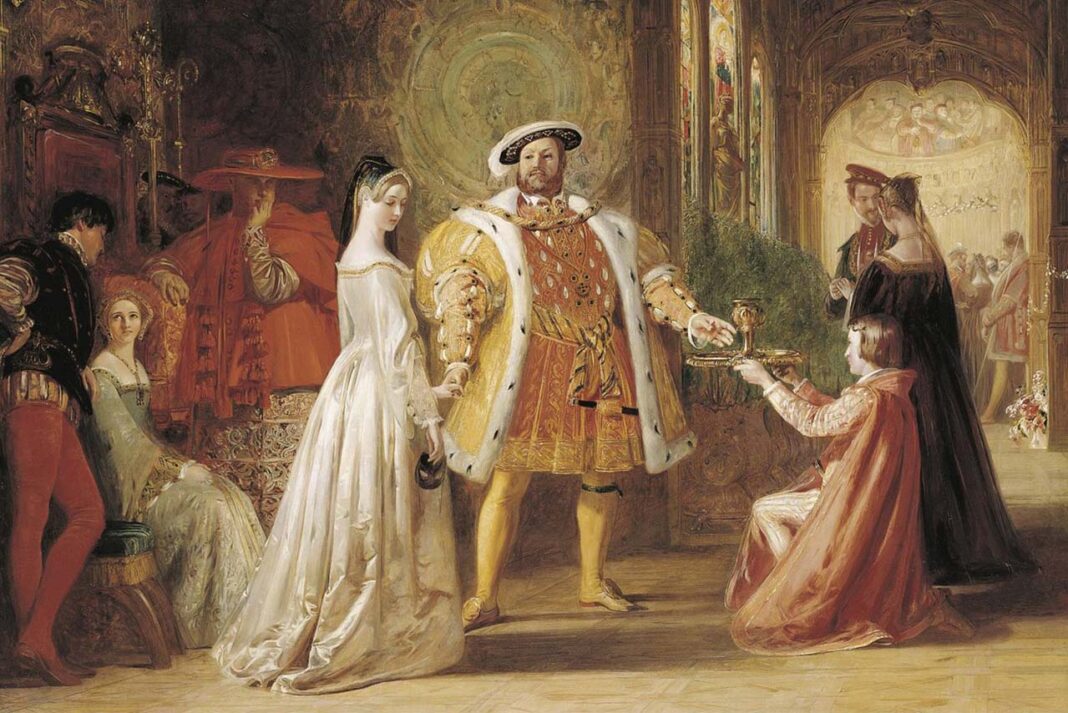Throughout history, the personality traits of political leaders have profoundly influenced not only their individual lives but also the fate of societies (Friedman, 2005). Especially during the era of absolute monarchies, the ruler’s psychological world directly shaped the structure and functioning of power. Henry VIII of England stands out as a noteworthy figure in this context. His reign was shaped not only by political decisions and institutional arrangements but also by personal relationships and narcissistic tendencies (Kernberg, 2016). In particular, his dramatic relationship with Anne Boleyn offers a compelling example of how power and narcissism can intertwine (Lewis, 1970; Wilson, 2014).
The Intersection of Narcissism and Power
Narcissism is characterized by excessive admiration and valuation of oneself, seeing others primarily as instruments to meet one’s own needs. Clinically, a narcissistic personality pattern is defined by an elevated self-concept, hypersensitivity to criticism, lack of empathy, and a constant need for validation (Kernberg, 2016). For someone in a position of power, these traits have consequences not only at the individual level but also at political and societal levels (Zaltzman, 2010).
Examining Henry VIII’s personality from this perspective reveals how his efforts to absolutize power intersected with his narcissistic needs. He used his reign not only as a political authority but also as a platform to exalt his own self (Friedman, 2005). Consequently, the king’s personal desires often intertwined with national interests, and his pursuit of narcissistic gratification even transformed England’s institutional structures (Montrose, 1996).
The Psychodynamic Framework of the Relationship with Anne Boleyn
Anne Boleyn was not merely a romantic figure in Henry’s life; she was also an important object of his narcissistic gratification (Wilson, 2014). From a psychoanalytic perspective, Henry’s orientation toward Anne was linked not only to physical attraction but also to the challenge she presented (Kernberg, 2016). Anne’s initial resistance to the king and her inaccessibility created a situation that was both threatening and enticing for a narcissistic personality.
For narcissistic individuals, the “unattainable object” often serves as a tool for validating self-worth (Person, 2004). In this context, Henry sought to affirm his power and charm by winning Anne’s love and loyalty. In this process, personal passion and the instrumentalization of power became intertwined, and political decisions were made to fulfill individual desire (Lewis, 1970).
Instrumentalization of Power and Structural Transformation
Henry’s relationship with Anne did not remain limited to his private life but profoundly altered England’s religious and political structure (Montrose, 1996). By breaking ties with the Catholic Church to secure his marriage and initiating the creation of the Anglican Church, he provided a striking example of how individual desire can influence political institutions. This demonstrates that narcissistic needs can be influential not only at interpersonal levels but also at institutional and historical levels (Friedman, 2005).
From a psychodynamic standpoint, Henry’s decisions cannot be explained solely by love or desire. These actions also reflect the narcissistic personality trait of wanting to “maintain control” (Kernberg, 2016). Refusing to submit to the Pope was not only a religious choice but also an attempt to expand the boundaries of absolute power (Lewis, 1970).
Narcissistic Injury and the Dissolution of the Relationship
For narcissistic personalities, the greatest threat is the loss of admiration and attention. Anne Boleyn’s eventual inability to meet Henry’s expectations, particularly her failure to produce a male heir, created a profound narcissistic injury in the king (Wilson, 2014). This led the initial idealization to rapidly shift into devaluation. In psychoanalytic literature, this process is known as the “idealization–devaluation cycle,” a characteristic dynamic of narcissistic relationships (Person, 2004).
Anne’s transformation from queen to accused, from passion to threat, represents a concrete historical manifestation of this cycle. Ultimately, Henry eliminated Anne to preserve his own power and narcissistic integrity, thereby legitimizing personal injury with political and legal justifications (Montrose, 1996).
Implications for the Psychology of Power
The Henry–Anne relationship illuminates universal dynamics of power psychology beyond its historical context. When absolute power merges with narcissistic needs, individual desires can shape social institutions and even affect the lives of masses (Friedman, 2005). In this context, a leader’s personality traits play a decisive role not only in the private sphere but also within the political structure itself (Zaltzman, 2010).
While narcissistic leadership may present a strong and charismatic appearance in the short term, it can produce destructive consequences in interpersonal relationships and institutional structures over time. Henry’s pursuit of personal gratification extended beyond a marital matter, becoming a turning point that transformed England’s religious, political, and social history (Lewis, 1970).
Conclusion
Henry VIII’s personality and his relationship with Anne Boleyn provide a compelling example of how power and narcissism intersect. Historically, it demonstrates that individual narcissistic needs can shape not only interpersonal relationships but also the institutional structure of the state. This example shows that understanding leaders’ personality traits offers important insights not only for clinical psychology but also for political science and history.
References
Friedman, M. (2005). Narcissism and power: A psychohistorical perspective. New York: Routledge.
Kernberg, O. F. (2016). The treatment of patients with borderline personality organization and narcissistic pathology. New York: Guilford Press.
Lewis, J. (1970). The life of Henry VIII. London: Weidenfeld & Nicolson.
Montrose, L. A. (1996). The body and the law in Tudor England: Gender, sexuality, and power. Chicago: University of Chicago Press.
Person, J. C. (2004). Psychohistory and political leadership: Case studies in personality and power. London: Palgrave Macmillan.
Wilson, D. (2014). Anne Boleyn: A new life of England’s tragic queen. London: HarperCollins.
Zaltzman, L. (2010). Power, personality, and politics: Psychohistorical approaches to leadership. New York: Springer.



